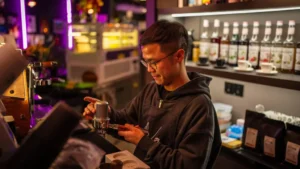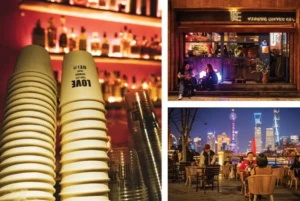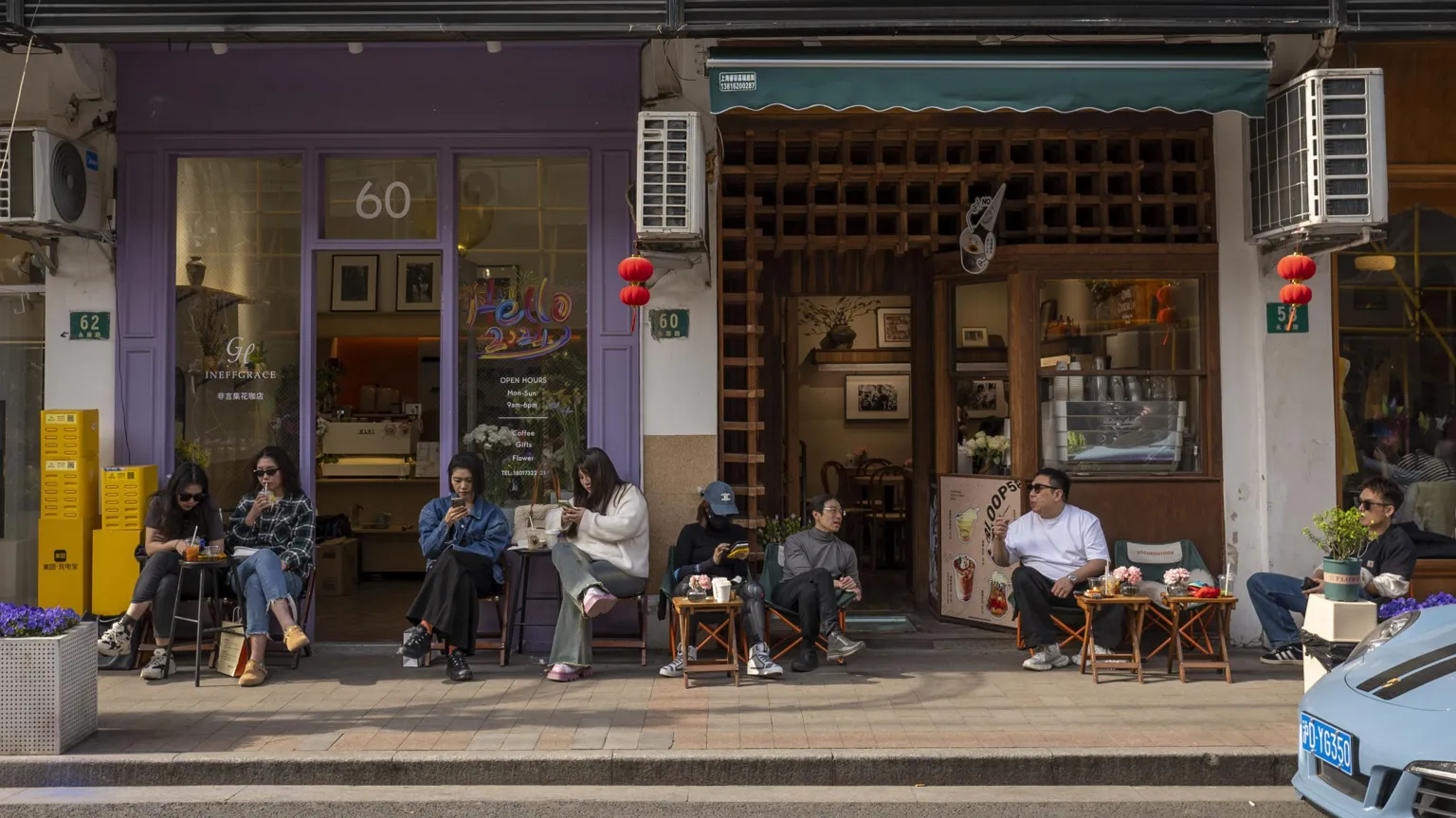Shanghai, China’s bustling metropolis, has experienced a coffee revolution. Walking through the city’s vibrant streets, you can’t miss the countless cafés dotting every corner. From small independent coffee shops to innovative cafés with unique themes, Shanghai’s café culture is thriving. In this article, we explore the journey of Shanghai’s love affair with coffee, delving into the dynamics of its burgeoning café scene, the challenges faced by café owners, and the cultural impact of this phenomenon.
The Rise of Shanghai’s Coffee Culture
Coffee on Every Corner
Shanghai now boasts more than 8,000 cafés, with some reports suggesting over 9,500 by the end of 2023. The explosion of coffee shops in the city is not merely a trend but a reflection of an evolving lifestyle. Post-COVID, there has been a significant boost in the café culture as residents seek outdoor spaces to socialize. The streets are lined with an array of coffee shops, each offering something unique to lure in customers. Whether it’s a minimalist vibe or a thematic experience, Shanghai’s cafés cater to a diverse clientele.

Independent Cafés vs. Big Chains
Unlike other Chinese cities dominated by big coffee chains like Starbucks and Luckin, Shanghai’s coffee scene is powered by niche, independent outlets. These cafés are driven by passion and innovation, setting them apart from the corporate giants. Dong Xiaoli, owner of Hidden Track, exemplifies this independent spirit. Her café focuses on a simple, welcoming atmosphere with a limited menu, appealing to the city’s young and trendy crowd. Despite the high competition and financial challenges, these independent cafés thrive on offering unique experiences.
Economic and Social Impact
The café boom in Shanghai has had a notable impact on the city’s economy and social fabric. With the increasing number of coffee drinkers, there is a growing demand for high-quality beans and unique brews. This appetite for experimentation has led to cafés importing beans from around the world, despite the high costs. The city’s café culture has also fostered a sense of community, with people gathering to socialize, work, or simply enjoy a good cup of coffee.

The Challenges of Running a Café in Shanghai
High Investment, Low Returns
Opening a café in Shanghai requires substantial investment in expensive machinery and interior décor. However, the return on investment is often minimal compared to other industries. Café owners like Dong Xiaoli advise potential entrepreneurs to think twice before diving into the business due to the financial challenges. The competition is fierce, and standing out requires not just good coffee but a distinctive ambiance and customer experience.
ALSO READ: https://newsreporto.com/keralas-devastation-landslides-unleash-deadly/
The Struggle for Survival
Many café owners are concerned about the sustainability of their businesses. With thousands of cafés vying for attention, not all can survive the cutthroat competition. The need to constantly innovate and offer something different is critical. For instance, R1070 café, which imports all its beans from Japan, faces high costs due to the increasing prices of wholesale beans influenced by global events. Despite these challenges, the passion for coffee keeps these entrepreneurs going.

Café Hybrids: Adapting to the Market
To maximize profits, many cafés in Shanghai are transforming into hybrid spaces. By day, they serve coffee; by night, they turn into bars with live music. This dual-function approach helps café owners utilize their spaces more effectively and attract a broader customer base. Flower Café and Bar, with its prime location overlooking Suzhou Creek, is one such example. Owner Wang Xi remains optimistic about the future, hoping for an economic recovery that will benefit all.
Unique Cafés and Their Stories
AC Café: A Deaf Community Hub
AC Café stands out not just for its coffee but for its unique workforce. Owned and operated by deaf individuals, the café employs deaf baristas, creating an inclusive environment for both staff and customers. Yang Yanfang, who interprets for those who can’t speak with their hands, notes the strong coffee culture post-pandemic, with friends eager to meet over coffee. This café symbolizes the inclusive spirit and innovative approaches within Shanghai’s coffee scene.

The Blind Barista Experience
Another notable café is one operated by blind staff, where customers are served through a hole in the wall by someone wearing a monkey suit arm. This quirky yet impactful concept attracts a steady stream of customers, offering a novel experience while promoting awareness and support for the blind community. These unique cafés highlight the diverse and inclusive nature of Shanghai’s café culture.
Coffee with a View: Flower Café and Bar
Located with a stunning view of the city, Flower Café and Bar combines coffee and cocktails to attract a wide range of customers. As night falls, the café transforms into a lively bar, offering live music and a vibrant atmosphere. This adaptability is crucial for survival in Shanghai’s competitive market. Wang Xi’s optimism about the future reflects the resilience and creativity of café owners in the city.
The Future of Shanghai’s Café Culture
Continuous Growth and Innovation
Shanghai’s café culture shows no signs of slowing down. With a market valued at over 260 billion yuan (US$35bn) last year and projections for further growth, the coffee industry in China is booming. The continuous influx of new cafés, coupled with the existing ones’ efforts to innovate and adapt, promises an exciting future for coffee lovers in Shanghai.

Cultural Integration and Global Influence
The city’s café culture is deeply intertwined with its cosmopolitan identity. Shanghai has always been an international trading city, and its embrace of coffee reflects this global outlook. As more people turn to coffee, the influence of international flavors and brewing techniques becomes more prominent. The city’s residents take pride in their café culture, viewing it as a symbol of their modern, outward-looking identity.
Embracing Sustainability and Ethical Practices
As the coffee industry grows, there is a rising awareness of sustainability and ethical practices. Many cafés are now focusing on sourcing beans from ethical producers and promoting sustainable practices within their operations. This shift not only caters to the environmentally conscious consumer but also sets a positive trend for the industry.
Shanghai’s love affair with coffee is a testament to the city’s dynamic and evolving culture. From the proliferation of independent cafés to the innovative and inclusive approaches of café owners, Shanghai’s coffee scene is a microcosm of its broader societal changes. As the city continues to embrace and expand its café culture, the streets of Shanghai will undoubtedly remain abuzz with the aroma of freshly brewed coffee, drawing in locals and tourists alike for a taste of its unique charm.

